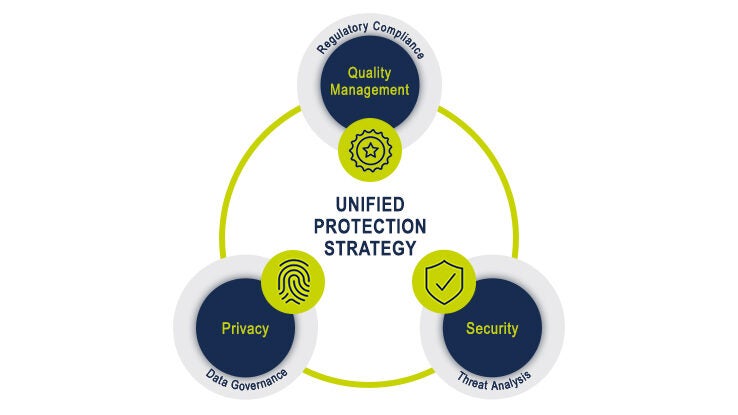Unveiling the Pillars of Trust: Transparency and Compliance in the ICT Sector (in Mexico).
In today's connected world, the Information and Communication Technology (ICT) sector plays a key role in shaping many aspects of our lives. From personal communications to global business operations, the ICT sector serves as the backbone of the digital age. To ensure the smooth functioning of this department, we follow two key principles: Transparency and Compliance.
In this blog post, we explore these concepts and understand their importance to the ICT industry and their implications for the tech landscape in Mexico.
The Significance of Compliance in the ICT Sector refers to the adherence to laws, regulations, and industry standards set by governmental bodies and relevant authorities. It ensures that ICT companies operate within the legal framework and follow industry best practices. Compliance covers a wide range of areas, including data protection, cybersecurity, intellectual property rights, and fair competition. Companies complying with these regulations safeguard user privacy, protect sensitive data, and promote fair and healthy market competition. Compliance also mitigates risks and helps prevent the misuse of technology, fostering a secure and trustworthy digital environment.
The Impact of Transparency and Compliance in Mexico plays a pivotal role in Mexico's rapidly growing ICT sector. As the country becomes increasingly digitized, ensuring transparency and compliance is crucial to address emerging challenges. Transparent practices help combat corruption, promote fair business dealings, and attract foreign investments. Compliance with international standards strengthens Mexico's position in the global technology market and opens avenues for international partnerships. Moreover, transparency and compliance build public trust in technology companies, encouraging the adoption of digital solutions across various sectors, such as finance, healthcare, and governance. By prioritizing these principles, Mexico can foster a thriving ICT ecosystem that benefits businesses and consumers.
The Mexican government has implemented several initiatives to promote transparency and compliance in the sector such as the National Digital Strategy (ENADIT) and the Federal Law of Transparency and Access to Public Information (LFTAIPG). These initiatives aim to promote transparency and accountability among companies, improve access to information for citizens, and foster innovation and competitiveness in the sector.
In conclusion
Transparency and compliance are the cornerstones of a robust and trustworthy ICT industry. Companies can gain stakeholder trust, foster innovation, and promote healthy competition by emphasizing transparency. Compliance enables businesses to adhere to legal and ethical standards, protect the interests of their users, and create a secure digital environment. In Mexico, these principles have helped drive growth in the ICT sector, attract investment, and build public confidence. By maintaining transparency and compliance, Mexico can position itself as a leading player in the global technology landscape, driving economic growth and social development.
Related information
Other articles related to the topic are shown below. One of them is a report by the CSIS Americas Program that examines the current state of Mexico’s Information Communication Technology (ICT) sector and offers recommendations to improve technological innovation and cybersecurity efforts, you can read it here.
You can look for more information on the current web page context that talks about the use of ICTs to promote openness and transparency and reduce corruption by clicking here. The article mentions that e-government has been used in several nations' prominent, comprehensive transparency efforts.
Bibliography
Canessa Montejo, M. F. (2020). Derechos humanos laborales en el seno de la Organización Internacional del Trabajo (3era ed.). Bogotá, Colombia: Universidad Externado de Colombia.
Cichon, M., & Hagemejer, K. (2006). Social Security for All: Investing in Global and Economic Development. A Consultation. Ginebra: Departamento de Seguridad Social de la OIT.
Comisión Nacional de Derechos Humanos. (2016). Derecho humano al trabajo y derechos humanos en el trabajo. Recuperado el 17 de septiembre de 2021, de Cartillas y Publicaciones. CNDH: https://www.cndh.org.mx/sites/default/files/documentos/2019-05/Cartilla-DH-trabajo.pdf
Congreso de la Unión. México. (julio de 2021). Ley Federal del Trabajo. Recuperado el 12 de septiembre de 2021, de Leyes Federales Vigentes: http://www.diputados.gob.mx/LeyesBiblio/pdf/125_310721.pdf
Solorio Castro, C., Martínez Carrillo, C., Gómez Vargas, R., Trimmer Espinosa, A., & González Garza, H. (2022). Los derechos fundamentales laborales. México: Tirant lo Blanch.http://www.worldcomplianceassociation.com/que-es-compliance.php ↑
CCE https://ccetest.org.mx/2021/03/03/codigo-de-integridad-etica-y-empresarial/ ↑
COPARMEX https://coparmex.org.mx/downloads/ENVIOS/GUIA_INTEGRIDAD_EMPRESARIA_121017.pdf ↑


Comments
Post a Comment